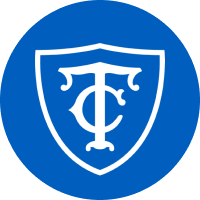Library Overview
The Gottesman Libraries is one of the nation's largest and most comprehensive research libraries in education. The scope of the collections reflects the historic commitment to advanced study in education, psychology, and the health professions in their local, national, and international dimensions.
Teachers College was founded in 1887 and in 1898 established its affiliation with Columbia University, under which it became the Education Faculty of the University. The Teachers College Library, now known as the Gottesman Libraries, became the pedagogical library of the University.

Russell Hall. Library. Curriculum Reading Room (Floor 5). Listening Table, Cabinet Of Records and
Loan Desk. Miss Tangora Behind Desk. Mrs Epstein At Catalog Right. Miss Phelps At File Of Discs.
(May 1940). For more glimpses into historical Teachers College, visit our archives.
From its early years, Teachers College has been committed to the advanced study of education, psychology, and the health service professions. To support scholarship in these areas, the College library developed extensive research collections, comprising both current and historical materials. Monographs, periodicals, curriculum materials, textbooks, publications of educational agencies, manuscript, and archival materials, photographs, and microforms, have been supplemented in recent years by materials in a wide range of visual and electronic formats. Overall, the collections include over 600,000 printed volumes together with substantial non-print collections.
The collection is comprehensive in American elementary and secondary education and in such subject areas as psychology, particularly applied psychology; educational administration; the history and philosophy of education; guidance; special education; higher and adult education; speech and language pathology and audiology; health and nursing education; nutrition; home and family life; curriculum and teaching; communications and computing technology; recreation; and international and comparative education. Distinctive collections include original documents; historical and contemporary textbooks; early catalogs and histories of academies, schools, and colleges; administrative reports of school systems; surveys; and curriculum guides. Materials are collected in a broad array of formats ranging from print to electronic, linear to interactive, audiovisual to microprocessor, and mechanical to binary in approach.
Rare book holdings include important collections of works on education dating from the 15th to 19th centuries; the Harvey-Darton Collection of British pre-1850 juveniles; the "W" Collection of 18th and 19th-century children's books; the Annie E. Moore Collection of illustrated children's books; American textbooks published before 1900; international, elementary, and secondary-level textbooks; and pre-1900 periodicals. The Adelaide Nutting Historical Nursing Collection of books, pamphlets, and manuscripts on the history of nursing and the David E. Smith Collection of writings on mathematics education provide an unusual depth of coverage in their fields. Other notable holdings include the International Collection of works on education abroad, extensive collections of 20th-century textbooks and courses of study, and an actively-updated collection of 20th-century fiction and nonfiction for children.
The Teachers College-related archival holdings include significant research resources such as the papers of Dean James Earl Russell, Dean William Russell, and President Hollis L. Caswell, the records of the Nursing Education Department, the extensive Guidance Laboratory test collections, records of the Peace Corps Teacher Training Program and of international education programs in Asia, Africa, and Latin America.
These collections, which hold such potential for promoting scholarship and educational progress, are made accessible whenever practical not only to those affiliated with Columbia University but to researchers and scholars throughout the world.



